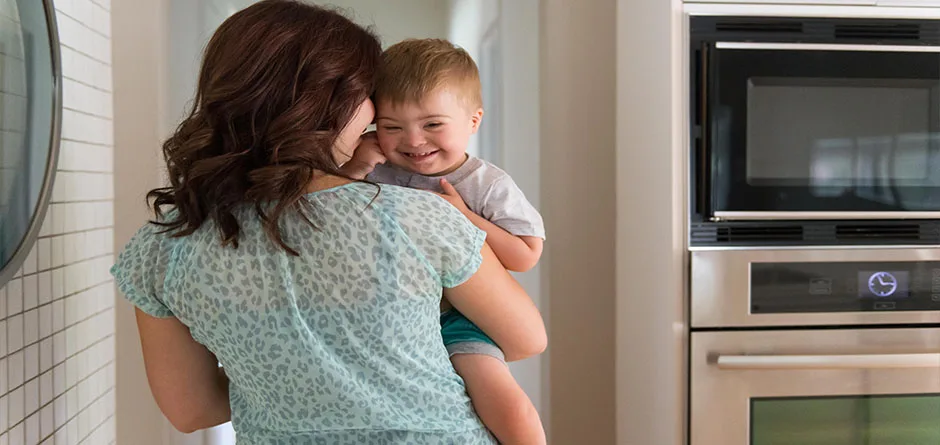For parents of a child with special needs, respite care can mean the difference between thriving and surviving. Respite care is essentially in-home, specialized care that provides short-term relief for primary caregivers. The service helps thousands of families across the country — families like Jonathan Ayran’s.
Ayran is a business development manager at Maxim Healthcare Services and has used respite care for his youngest son, Ben, for the past two years. In addition to using the service himself, Ayran has spent the past 11 years promoting respite services as part of his job, connecting families with trusted caregivers nearly every day. For parents considering respite care, Ayran says it’s helpful to know these five things.
1. You don’t have to leave your child in order to benefit from respite care.
“Initially, my wife and I weren’t comfortable having someone else take care of our son,” says Ayran. “We slowly let ourselves relax a little bit each time and built trust with our caregiver. That experience changed the way I look at staffing caregivers for my clients.” Ayran tells parents to start off staying home during respite care sessions. As they get to know the caregiver and feel more comfortable, they can use the time to leave the house, run errands, etc. “We can now leave for longer stretches of time and know Ben is having fun and being taken care of while we’re gone,” he says.
2. Respite care services look different for each family.
There’s no “right” way to use at-home care, and parents can decide which tasks are most helpful for the caregiver to perform. In fact, respite care services are tailored to each unique family and their child’s needs. “We match families with caregivers who are best suited to meet their needs and perform the most necessary tasks,” says Ayran. “Each family is different, so we cater our services accordingly.”
3. It’s helpful to ask about your caregiver’s qualifications and experience.
A key factor in trusting your caregiver is understanding their qualifications and knowing they’ve met strict standards. At Maxim, caregivers complete a thorough interview process, industry-leading compliance trainings, and must also maintain annual requirements and certifications (i.e. CPR) that exceed state minimum requirements. “We have very high standards in who we recruit and train, which translates into providing reliable, often over-qualified caregivers,” says Ayran.
4. Respite services can benefit every family member, not just parents.
There’s no doubt that respite care gives parents much-needed breaks, time to rest and uninterrupted time to accomplish a variety of tasks both in and out of the home. “We’ve used the time to complete home projects, assemble furniture, rest, prepare a meal together and go to the grocery store,” says Ayran. “To a typical family, those are simple things. For us, it’s a treat that we are so grateful for.”
It’s a common misconception that respite care exists exclusively to help parents, but the benefits extend to every member of the family. “It’s really vital to our mental health, for my wife and I, and both of our sons,” says Ayran. “I can see that Ben has developed a relationship with our caregiver and looks forward to seeing her. My older son also benefits from it because he can have our full attention while Ben is being taken care of.”
5. You may qualify for financial help.
It can require time and research, but many families find state programs that provide financial assistance for respite care. Check to see if your state has a Lifespan program through the ARCH National Respite Network. There are also Medicaid waivers that cover respite care costs for children with special needs. Benefits vary by state and can have waiting lists, so it’s best to be proactive and apply early. For military families, the Navy’s Exceptional Family Member Program can also help cover costs. In the state of California, there is support and resources available through California Regional Centers.
Learn more about our respite care services.
*Patient information and likeness featured with the consent of the patient and family*
Serving with purpose
At Maxim Healthcare, we provide compassionate private duty nursing, personal care and home health services for adults and children – all tailored to your unique needs. Our caring team is dedicated to supporting families with heartfelt services.
Explore our care services to learn more about our service offerings and how we can help your families.


